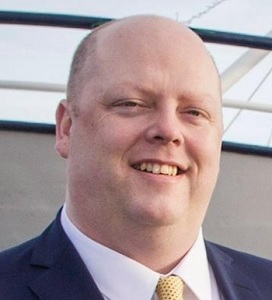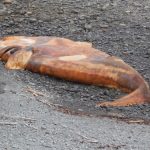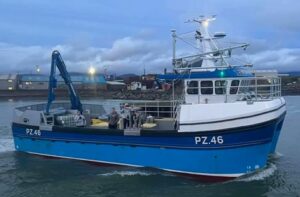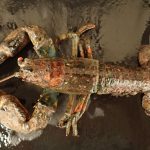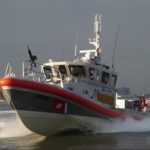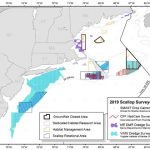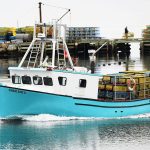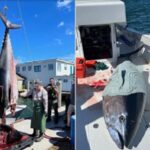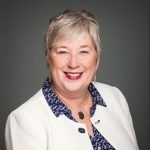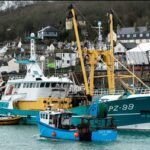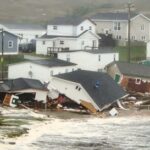Monthly Archives: April 2022

Coast Guard aircrew medevacs man from fishing vessel off New Jersey coast
The Coast Guard medevaced a 46-year-old man from the fishing vessel F/V Captain John Wednesday approximately 45 miles east of Point Pleasant. Another crewmember aboard the Captain John used a marine radio to notify Coast Guard Sector Delaware Bay watchstanders of the medical emergency at about 5:30 p.m. The man was safely medevaced at about 6:30 p.m. and taken to Air Station Atlantic City where his care was transferred to awaiting emergency medical services personnel. -USCG- 07:40
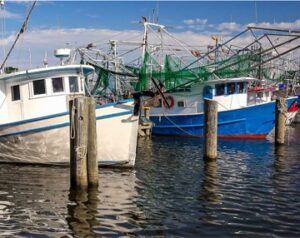
Mississippi: Fishing industry focuses on new fisheries, education
Environmental disasters, global markets, strict fishing regulations and the increasing average age of working fishers is bearing down on the industry, threatening its long-term viability. These factors have Ryan Bradley concerned for the future of the Mississippi fishing industry. So, he is taking action to help fishers stay in the industry and draw young people to the business. “This is a proud industry. We work hard. But it is a high-stress profession, and you have to be a thick-skinned person to do this job,” said Bradley, who is a fifth-generation commercial fisherman and executive director of Mississippi Commercial Fisheries United, a nonprofit dedicated to protecting the common interests of the state’s fishermen, fishing industry and seafood consumers. >click to read< 19:06
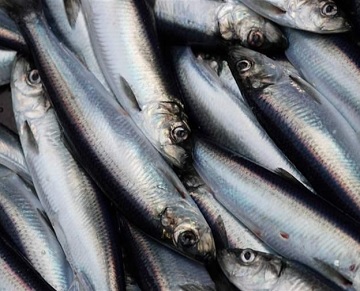
Midwater trawler critics intend to appeal court decision
Fishermen in the Gulf of Maine are seeking to appeal a federal judge’s reversal of an exclusion zone that keeps herring trawlers 12 miles offshore. The March 4 ruling by US District Court Judge Leo Sorokin in Boston could reopen some Northeast waters to midwater herring trawlers, reversing the 2019 rule change that excluded them from a wide swath. from the Atlantic coast from Long Island to the Canadian border. In his opinion, Judge Sorokin wrote that the concept of “localized depletion” put forward by opponents of midwater trawlers has not been adequately defined by NMFS, leading him to rule that the exclusion zone decision violated Magnuson-Steven National Standard 4. Fishing Management and Conservation Law. >click to read< 14:28
Athearn Marine Agency Boat of the Week: 72′ Dragger with State/Federal Permits, 3412E Cat
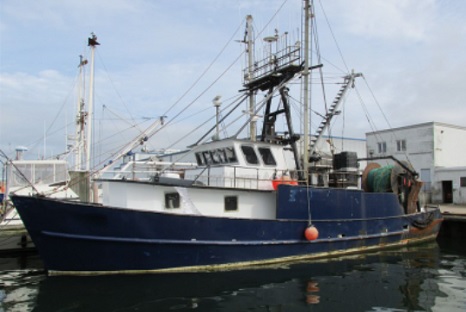 To review specifications, information, and 101 photos’, >click here<, To see all the boats in this series >click here< 11:39
To review specifications, information, and 101 photos’, >click here<, To see all the boats in this series >click here< 11:39
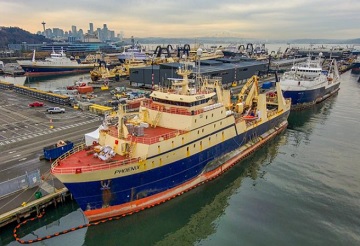
All About the Fishing Fleet at Terminal 91
The factory trawlers, or fish processing vessels, of the North Pacific Fishing Fleet are back in Seattle after four months of harvesting pollock in the Bering Sea and Gulf of Alaska. The docks at Terminal 91 are buzzing with activity as crews unload their recent harvest and prepare to set sail again in late May. For more than 100 years, the North Pacific Fish Fleet, homeported at Terminal 91 and Fishermen’s Terminal, has fed the world and the economies of the Pacific Northwest and state of Alaska. Our region supplies 13% of the total U.S. commercial fisheries harvest by value. Commercial fishing activities at the Port of Seattle generated more than $671.2 million in business output in 2017 and supported 7,200 jobs. Learn more about the North Pacific Fishing Fleet, photos, >click to read< 10:16

Nova Scotia: Mackerel closure causes bait concerns as fishermen prepare for lobster season
Minister of Fisheries and Oceans (DFO) Joyce Murray announced on March 30 that there would be no directed commercial or bait fishing for southern gulf spring herring and a closure of the Atlantic mackerel commercial and bait fisheries this year in Atlantic Canada and Quebec. Guysborough County Inshore Fisherman’s Association Manager Ginny Boudreau’s first concern was about what was not covered in the DFO news release: loss of licences and lack of compensation. Those licenses have essentially been taken away from them…How you can just take thousands of licences out of the commercial fishery and not even a mention of that in the news release?… that’s huge,” >click to read< 08:41
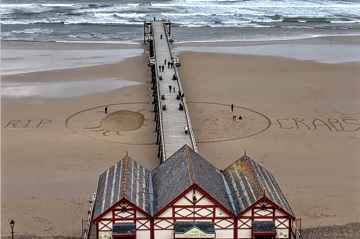
‘RIP CRABS’: Dead crustaceans dumped on London street in protest of deaths
Protestors have dumped piles of dead and rotting crabs on a London street demanding more action over the mass crustacean deaths along the Teesside coast. The strange occurrence was first noted six months ago when huge piles of dead and dying creatures started to wash up on the beaches at Redcar, Markse and Saltburn and north to Seaton Carew. An image was also etched into the sand at Saltburn beach on Tuesday by local people with a message that read ‘RIP crabs’. A government enquiry into the incident blamed an algal bloom for the crustacean deaths which were first noted last October. It ruled out pollution, dredging activity on the Tees and other causes,,, >click to read< 07:50
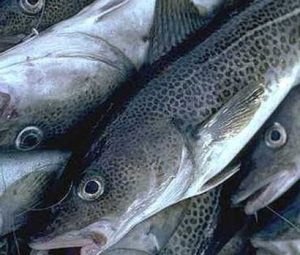
Canada and France reach agreement with total allowable catch rollover of 3Ps cod
Today, the Minister of Fisheries, Oceans and the Canadian Coast Guard, the Honourable Joyce Murray, announced that an agreement has been reached with France regarding 3Ps cod for the 2022-23 fishing season. Both countries intend to roll over the current total allowable catch (TAC) of 1,346 tonnes. Canada and France (in respect of Saint Pierre and Miquelon) co-manage fish stocks, including cod, in the 3Ps zone off the south coast of Newfoundland and Labrador. Under the Procès-Verbal Agreement, the two countries meet annually to negotiate management measures, including the TAC of these shared stocks in the North Atlantic. >click to read< 20:35
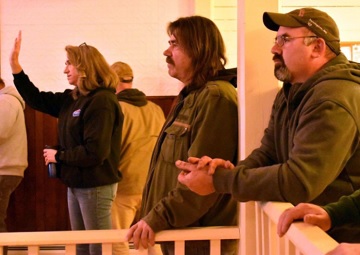
DMR brings news of declining young lobsters, resiliency measures to local lobstermen
“We’re not talking about whales.” Those were among the first words from Kathleen Reardon, lead biologist for the Maine DMR, to lobstermen at Stonington Town Hall on March 31. Both ongoing lawsuits and legislation aimed at protecting right whales from entanglement with lobster trap lines have delayed lobster stock assessments and analysis. But now lobster councils are meeting across the state to hear about a draft addendum to the Atlantic States Marine Fisheries Commission lobster management plan for the Gulf of Maine and Georges Bank, where 90 percent of U.S. landings are. The ASMFC manages near-shore fisheries for 15 states, including Maine. The draft addendum would affect Lobster Management Areas 1 and 3 and off Cape Cod as well as Maine, New Hampshire and Massachusetts. >click to read< 16:37
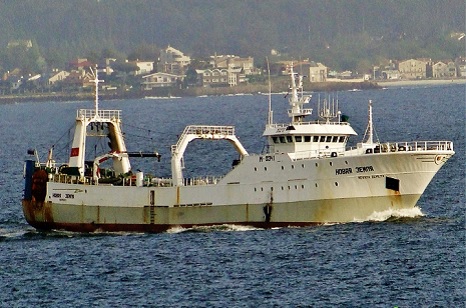
Russian head of NAFO has stepped down; country must be expelled/fish quotas transferred to Ukraine
Seaward Enterprises Association of Newfoundland and Labrador (SEA-NL) says it’s not enough that the Russian president and chair of the international organization that manages fish stock inside and outside Canada’s 200-mile limit has stepped down. The Russian Federation itself must be expelled from the Northwest Atlantic Fisheries Organization, with the country’s thousands of tonnes of quotas transferred to the Ukraine, another member of the 13-country organization. “Russia has violated every protocol on the face of the earth with its war on Ukraine, and its membership in NAFO should be cancelled outright, and its fish quotas transferred,” says Ryan Cleary, SEA-NL’s Executive Director. “Russian seafood is banned around the world, so it stands to reason that its offshore dragger fleet should not be permitted to fish as a NAFO-member country.” >click to read< 11:50
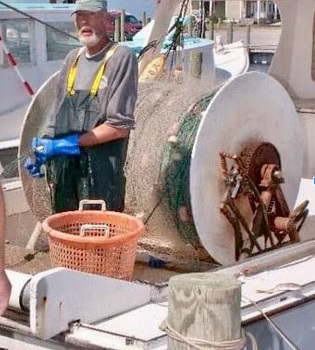
Commercial Fisherman William Van Druten, Jr. of Frisco, NC has passed away
Bill was born in Passaic, NJ on March 11, 1942 to William and Trina Van Druten. His life was driven by his love for the sea. The depth of his life was immense; from playing basketball at Rider College, to pursuing his career as an educator, and ultimately moving to Frisco, NC to achieve his lifelong dream of being a commercial fisherman. It is the sea that called to him throughout his life and he instilled a love for it in so many. Realizing this dream was one of many pearls in his life. Being known as “Tall Bill” in the fishing community delighted him and brought him great contentment. >click to read< 10:40
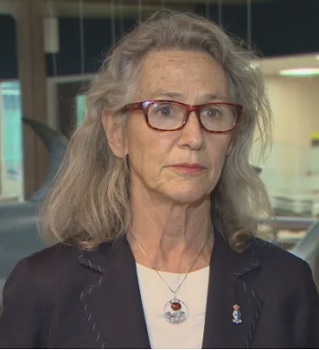
Immediate closure of herring and mackerel fisheries a broadside into coastal fishing communities
The Coalition of Atlantic and Québec fishing organizations questions the rapidity of the government decision and the lack of transparency in the science. “How do you go from a no closure to a closure situation without consulting commercial fishers,” said Martin Mallet, MFU Executive Director. “The 2021 stock assessment showed that the 4000t quota would enable recovery of the resource. This decision had been taken in collaboration with industry, and we were to revise the situation after the next stock assessment in 2023. Without consultation or even advance notice of a potential problem, DFO has slammed the commercial fishery.” This unilateral closure of the spring herring and mackerel commercial fisheries will have a major negative impact on the fishery since these fish are a significant source of bait for the lobster and snow crab fisheries. >click to read< 09:16
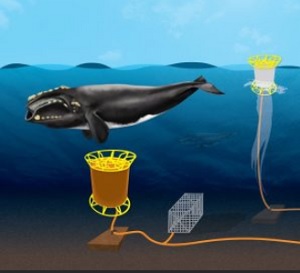
Massachusetts state regulators reject plan to use ropeless lobster traps
The proposal, submitted by a group of lobstermen organized under the name “Pioneers for a Thoughtful Coexistence,” asked regulators to allow them to set as many as 200 ropeless traps in areas along the South Shore, where lobster fishing is closed three months a year. DMF Director Daniel McKiernan denied the plan and laid out three reasons for his decision, the first being that the proposal “lacks a study design that will contribute meaningfully to further understanding the efficacy of ropeless fishing.” >click to read< 08:02

S.497 would establish the American Fisheries Advisory Committee within Department of Commerce
After reaching out to Senator Ed Markey and Senator Elisabeth Warren and informing them that under NOAA, the SKG Grant money was not going to our fisherman as intended. My experience of being on a panel in Saint Petersburg to evaluate the applicants for two days, I discovered that the panel was there to please the public and that NOAA has complete say of who got the money! I reported this to Bruce Schactler, and Senator Sullivan. Markey who was opposed, sent his aid to met with me. After I told her what happened Markey came on board and it will now go to the House of Representatives. I am asking all Senators to support this bill. It will set up an advisory panel as was in 1954 and give our fisherman a better chance of the funds. Please, >click to read< Best Regards, Sam Parisi
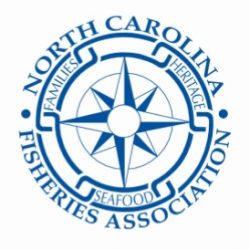
North Carolina Fisheries Association Weekly Update for April 04, 2022
Over the last couple of months, many NC anglers have reached out to the NCFA seeking to get a better understanding of what’s really going on in the world of fisheries management here in North Carolina. That said, there have been several anglers who have questioned our assessment of the CCA’s true agenda, which in our opinion is to reduce or even eliminate harvest of wild fish stocks in both the commercial and recreational sectors. I had an angler from Pamlico County tell me that the CCA had assured him that once the nets were gone recreational bag limits for Red Drum, Southern Flounder, and Speckled Trout would increase and nothing I write could convince him otherwise. This got me thinking that maybe he and other anglers would be more receptive to the truth if someone else wrote it. >click to read the attached article< 16:40
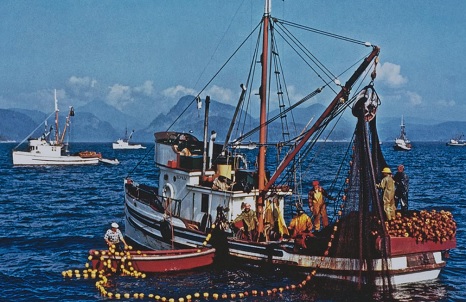
B.C.’s arguably most famous fishing vessel is restored following years of hard work
The BCP45 turns 95 this year. Fifty years ago, the ship first rose to fame after being featured on the five-dollar bill. Now it’s on display at the Maritime Heritage Museum in Campbell River, after years of restoration work. Video, >click to watch< A five-dollar bill’s big fish story – It was 1951, and eager for a life at sea, a 14-year-old boy signed on as a cook aboard his uncle’s fishing boat, the BCP45. His name was Allen (Ollie) Chickite, and he was from the We Wai Kai Nation of Quadra Island. George Hunter was one of Canada’s least known yet most published photographers. He is considered one of the greatest chroniclers of post-Second World War Canada. photos, >click to read< 11:30
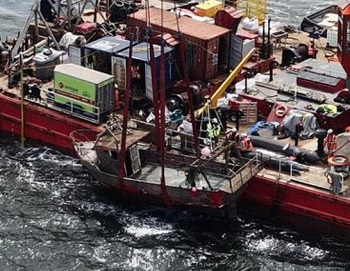
F/V Nicola Faith investigation complete almost a year after wreck was raised
The investigation into the sinking Nicola Faith fishing boat which claimed the lives of its crew is now complete almost one year after the vessel was found. Carl McGrath, 34, Ross Ballantine, 39, and Alan Minard, 20, were on board the vessel when it left Conwy Harbour on January 27, 2021. The wreckage was lifted from the seabed last May in a two day operation before being transported to a secure location for further investigation. The Marine Accident Investigation Branch are due to report their findings in a report to be published in the coming weeks. >click to read< 09:08
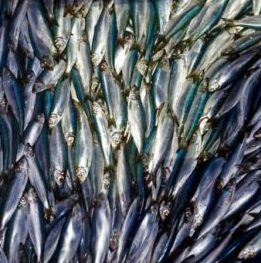
Bait Crisis: Lobstermen worry fishery closures will create bait supply issues
Last week, Fisheries and Oceans Canada shut down commercial harvesting of herring in the Gulf of St. Lawrence and Atlantic mackerel in Atlantic Canada and Quebec amid dwindling stocks. The two species are important sources of bait for the lobster industry. Some Island fishermen say they were caught off guard by the announcement as they prepare for setting day about a month from now. “It’s tough on fishermen because … we need the bait to fish lobster,” said Mallory Harris, who fishes in North Lake. Other fishermen said they’re already seeing the price of bait for lobster traps increase. >click to read< 08:14
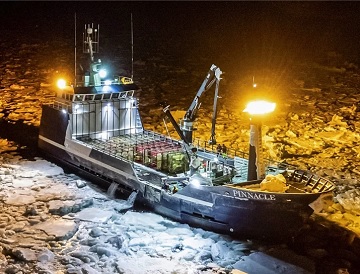
Into the ice: A crab boat’s quest for snow crab in a Bering Sea upended by climate change
Aboard the F/V Pinnacle in the Bering Sea. Through the wheelhouse window, Capt. Mark Casto spotted a white line on the horizon. The edge of an ice floe was illuminated by bow lights piercing the morning darkness of the Bering Sea. He throttled back the engines. Soon, the Seattle-based crab boat began to nose through closely packed pancake-like pieces and bigger craggy chunks, some the size of boulders, which bobbed about in the currents and clanged against the hull. Casto grabbed a microphone to relay a change in plans to the deck crew. Pull the pots up and stack them aboard. They would search for crab somewhere else. “Where the hell did that ice floe come from? … We’re retreating. It’s a hard word to say,” Casto declared. photos, video, charts and grafs, >click to read< 17:50

Dismal B.C. herring season sparks renewed calls for moratorium
Three days after setting his nets out in the Strait of Georgia between B.C.’s mainland and Vancouver Island, Josh Young headed back home to Pender Harbour. The herring he was expecting to catch were nowhere to be found. “I will be honest… the stocks I saw this year weren’t the healthiest year I’ve ever seen,” Young said. “We didn’t catch our entire quota.” Young wasn’t alone. When the season opened March 3 for boats equipped with seine nets, they scooped up their fill of the silver foot-long fish in 48 hours. By the time Young and hundreds of others using gillnets arrived on March 5, the fish seemed to have disappeared. “It was a different year,” Young said stoically. >click to read< 16:31
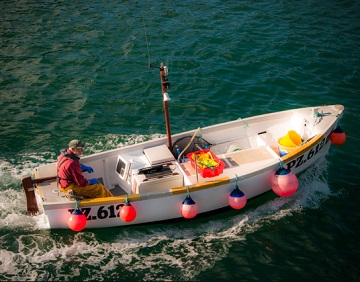
Big Brother is watching you. “we want to know who you are, where you are & what you have caught”
While we all appreciate the need to have accurate data there are ways in which the objective can be achieved without creating a world akin to the dystopian future foretold in the novel, 1984. When you hear the terms “Big Brother”, Room 101 or “Thought Police” did you know that both phrases come directly from George Orwell’s classic novel 1984? Orwell’s dark cautionary tale published in 1949 about the dangers of totalitarianism, government surveillance, and censorship left a profound mark on the English language, as Orwell introduced readers to new words and phrases to help him describe the anti-utopia of Oceania where the story is centred. Some may be moved indeed to describe the recent introduction of I-VMS, the intimate monitoring of the very smallest fishing vessels in the UK fleet, as ‘Orwellian’. >click to read<13:28
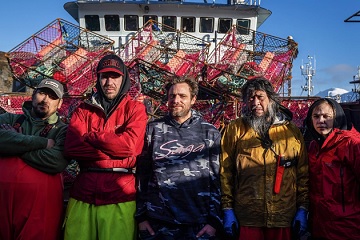
‘Deadliest Catch,’ a reality show with drama – and room for make-believe
This year, nine Bering Sea crab boats will appear on the Discovery Channel show’s 18th season, premiering April 19. That represents nearly a quarter of the 39 vessels registered as of March 21 to catch snow crab in the 2022 harvest, which has been greatly reduced due to conservation concerns. Some are smaller boats that may have a more difficult time operating in the cold, rough water of the northern Bering Sea, where surveys indicate most of the crab were to be found this year. But with the money paid by Discovery, their captains had plenty of added incentive to keep crabbing, and keep their crews employed, in 2022 rather than transferring small catch quotas to larger boats. Just how much “Deadliest Catch” pumps into the crab fleet is largely kept confidential. >click to read< 11:32
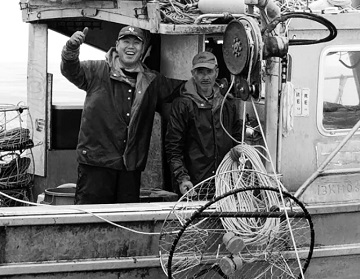
Reallocation: Fed changes to BC crab fishery could bankrupt some commercial fishermen
Commercial crab fishermen in British Columbia fear that changes to the way they can fish for Dungeness crab off the west coast of Vancouver Island could push some small, family operations out of business. This year however, crab fishermen like Jason Voong, 33, may not be able to harvest enough crabs to stay in business following changes announced by the federal government in December to reallocate half of the licenses available in the area to local First Nations. “I fully support, and the fishers support reconciliation, it’s just a process that’s wrong right now the way DFO has treated the commercial fleet and the five nations.” >click to read< 09:41
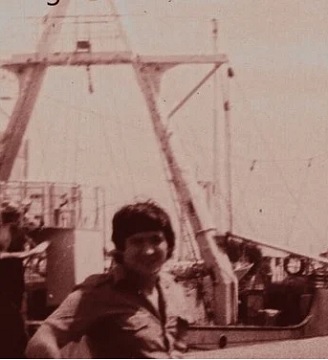
The Galician fisherman who accidentally became a spy in the Falklands War
Four decades after the war that hurts Argentines the most, Fernando Otero, a 68-year-old Galician sailor who never lived more than ten blocks from the sea, remembers his days aboard the Usurbil, the fishing vessel that in 1982 searched for hake by the Argentine Sea when he was militarized and forced to do intelligence work while pretending to fish. “I was there when the military arrived and the ship was militarized,” says Otero, a senior naval mechanic who was in charge of maintaining the Usurbil’s machines. When he arrived in Argentina to board the Usurbil, the steel-hulled freezer trawler that had been launched in 1968 in Vigo and later sold to the company Pesquera del Atlántico SA, Otero had ten years of experience and had already sailed the Atlantic, the Pacific, the Indian. >click to read< 08:46

Coast Guard medevacs crewmember from fishing vessel near Port Fourchon, La.
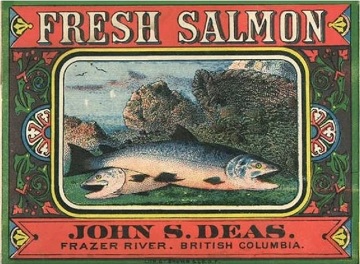
The story of how a Black man pioneered the salmon canning industry in British Columbia in the 1870s
Located on an island on the Fraser River in British Columbia, Canada, is the Deas Island Regional Park What many do not know is that the park took its name from John Sullivan Deas, a founder of the salmon canning industry in British Columbia. More than 140 years ago, the island was the site of Deas’ cannery. A tinsmith by trade, Deas is believed to have pioneered the salmon canning industry in British Columbia, becoming the leading canner on the Fraser River in the 1870s. Born in 1838 in South Carolina among some groups of Black people freed from slavery, Deas was a trained tinsmith by the time he was in his teens. Historians have described the 1870s also as the Salmon Rush as anyone with ample capital could open a cannery. Deas knew how to make cans, so salmon canning was an ideal business idea. >click to read< 15:30
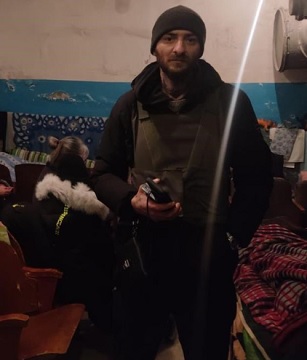
Canadian fisherman helping displaced Ukrainians escapes Chernihiv on foot amid Russian shelling
A Canadian who was trapped in northern Ukraine while attempting to assist displaced citizens has managed to escape the area on foot as bombs rained down. Lex Brukovskiy was stuck in the city of Chernihiv for five days before he was able to walk out on Tuesday, leaving his van behind as Russian shelling of roads and bridges continued. He said in a series of texts that once outside the city in eastern Ukraine, he continued to walk, hitched a ride and then eventually rejoined his original convoy of relief vehicles and reached the western city of Lviv on Thursday. Brukovskiy, a fisherman from Meteghan, N.S., who grew up in Ukraine, says the convoy of vans did rescue six displaced people, as several vehicles managed to get out of the city ahead of him. >click to read< 10:38







